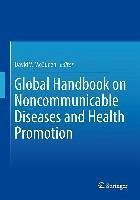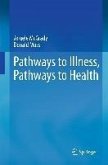David V. McQueen, editor
A scan of health challenges around the globe readily brings to mind a range of infectious illnesses, from HIV to influenza. Yet chronic non-contagious conditions--heart disease, asthma, diabetes, cancer--are more prevalent, and their rates soaring, across the developed and developing worlds.
The Global Handbook on Noncommunicable Diseases and Health Promotion is an important resource for understanding and approaching chronic illnesses and their prevention. This timely text balances theory and strategies to provide an integrative context for health-affecting behaviors regarding tobacco use, food choices, and physical activity. Coverage expands on current medical/clinical public health perspectives, arguing that closer attention to social context is crucial to better use of health resources and more relevant preventive efforts. Possible roles for hospitals, the workplace, government agencies, NGOs, and other institutions are analyzed, as is the potential for addressing larger underlying health factors (e.g., inequities and poverty) at the societal level. Topics covered include:
- The nature of causality: beyond traditional evidence
- Learning from the social sciences in chronic disease health promotion
- Contextual factors in health and illness
- Understanding and applying a social determinants of health framework for addressing NCDs
- Public health, NCDs, health promotion and business partnering
- NCDs and civil society: a history and a roadmap
As the authors of the Global Handbook on Noncommunicable Diseases and Health Promotion make abundantly clear, opportunities are as numerous as the issues, and researchers and graduate students in global public health, health promotion, and chronic disease epidemiology will find these chapters positive and realistic.
Dieser Download kann aus rechtlichen Gründen nur mit Rechnungsadresse in A, B, BG, CY, CZ, D, DK, EW, E, FIN, F, GR, HR, H, IRL, I, LT, L, LR, M, NL, PL, P, R, S, SLO, SK ausgeliefert werden.









